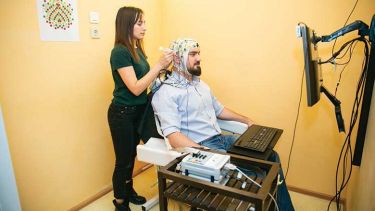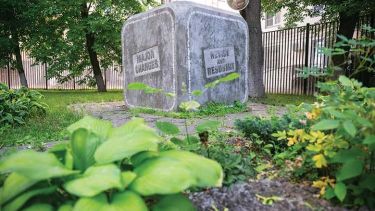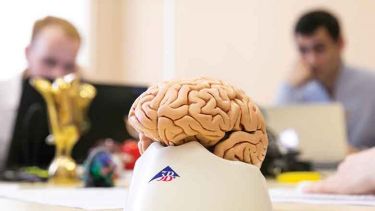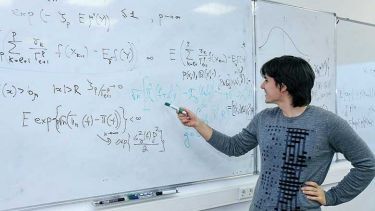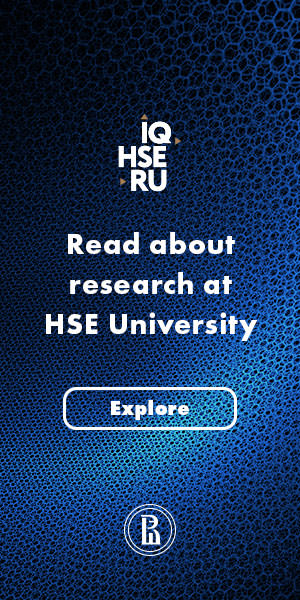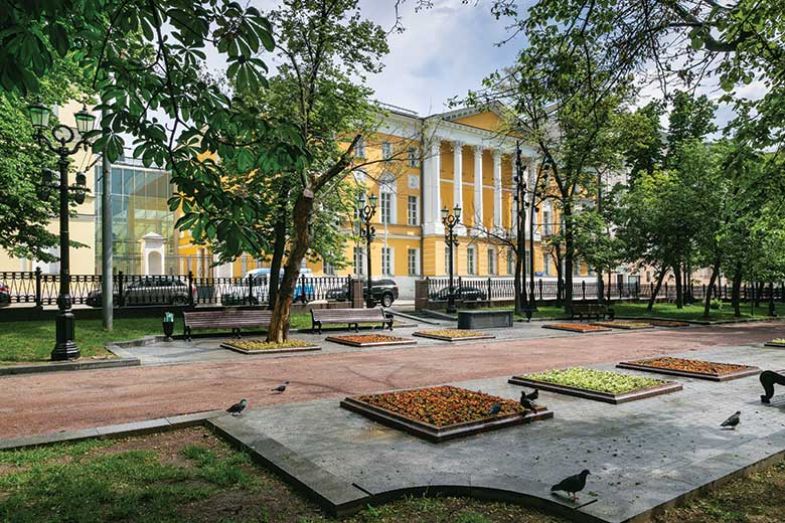
Source:
HSE University

By promoting academic governance, interdisciplinary research and international collaboration, HSE University continues to grow and attract top talent
For a university established in 1992 with 157 students, HSE University in Russia has grown to become one of the country’s consistently top-ranked institutions. There are now more than 40,000 students across its four campuses in Moscow, St Petersburg, Nizhny Novgorod and Perm, and it is one of Times Higher Education’s top 25 universities from emerging economies, with its faculty and students representing more than 100 countries.
“We have a young, dynamic faculty in teaching and research, and we want to promote cooperation between our faculty and their international colleagues, whether individually or in international research centres,” says Maria Yudkevich (pictured, below), HSE’s vice-rector. “This brings us international expertise but also enables international colleagues to work as mentors to the faculty and students to build on their academic talents.”
Reflecting its growing international stature, at least 39 of HSE’s master’s programmes are taught in English, and there are 57 double-degree opportunities offered in partnership with international institutions. About 40 international laboratories are led by renowned scholars, such as the economist and Nobel laureate Eric Maskin and the mathematician Andrei Okounkov, who received the Fields Medal in 2006. On Coursera, the online learning platform, HSE ranks fifth worldwide in terms of the number of courses it offers. Russia has also named it a National Research University alongside a number of older, more established institutions.
While it is important to attract globally competitive teaching and research talent, it is just as crucial to have a diverse student base, says Vice-rector Yudkevich. “Diversity is important because it helps students to bloom [and] also experience study in a multicultural and multilingual environment. It’s important to get this experience for the global labour market of the future,” she says. The number of international students at HSE is predicted to increase to more than 4,000 by 2020.
Underpinning this growth has been a phase of structural reform, a central part of which was a change to academic governance and more decentralised decision making at the university. Founded as a single-discipline institution in economics, HSE now offers a much broader curriculum. “We have now been around for more than 26 years, and the initial model of tight control from above no longer works for our more comprehensive offer,” explains Vice-rector Yudkevich.
Departments at HSE work together in multidisciplinary clusters, and operate a shared governance model with a high degree of autonomy to make their own decisions and to build their own roadmap. “We wanted to give faculties more freedom in decision making,” she adds, “but we had to wait until the disciplinary communities were strong enough both in academic and leadership aspects. If you’re an old university with a long culture of this, it’s easy. From the beginning, we have tried to build an atmosphere of mutual trust between faculties as well as between academics and administration.”
How research is conducted at HSE has also been transformed. The university has moved from a “chair system” – a model popular in German universities, where the power in each department rests with a limited group of professors, who have control of administration and budget – to a more collegiate model.
Research is now embedded into academic life, too, offering all students the opportunity to contribute towards HSE’s research goals.
“Our legacy was a system where teaching and research were kept separate and we wanted to bring them together,” says Vice-rector Yudkevich.
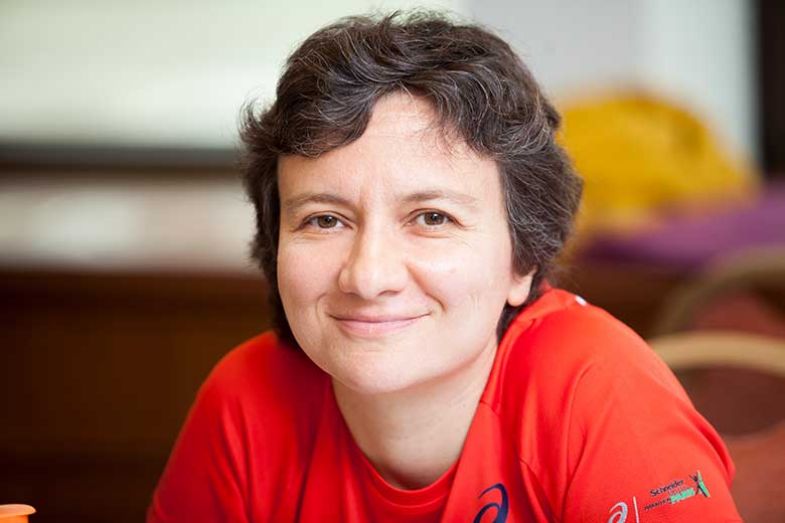
An example of this is a research project in HSE’s Center for Language and Brain, which is studying, among other problems, the impact of accidents or strokes on language skills and brain function. Students, academics and postgraduates from across linguistics, psychology and computer science can get involved. Vice-rector Yudkevich believes that experiencing the practical applications of research is important for any student: “Although not all students will go into academic life, we think it’s really important to get that research experience for any type of job.”
Another large research project at HSE is conducted by its Laboratory of Methods for Big Data Analysis, which has contributed expertise and research support to Cern, analysing data produced by the Large Hadron Collider.
Since 2013, HSE has been a member of Project 5-100, a selective government programme designed to promote the competitiveness of Russian universities on a global stage. As with similar programmes, such as China’s University Alliance of the Silk Road, it supports universities financially and helps with – among other things – succession planning with senior university management, academic mobility programmes and developing joint educational programmes with international universities. Vice-rector Yudkevich says that the programme gives HSE “an important push toward entering the global academic community”.
There has been another, unexpected, benefit of HSE’s involvement with the 5-100 project. “A surprising development is what we all, Russian universities, have learned about each other,” she explains.
“During Soviet times, there was almost no inter-cooperation, as higher education institutions tended to work for the interests of the industrial ministries. We can now exchange best practices in Russia as well as with international partners.”
Vice-rector Yudkevich likens this collaboration to training for the Olympic Games: “You can’t stay in your home university to compete internationally – you need to compete alongside friends and neighbours.”
HSE continues to improve its international rankings, but Vice-rector Yudkevich insists that this success is a “consequence, not a goal” of the changes that the university has made to become more collaborative. There are several objectives in the pipeline, though, such as building on its joint ventures with the Russian Academy of Sciences – research and education partnerships in the fields of physics, chemistry and life sciences.
Ensuring that HSE is a compelling place to work is also high on the list of priorities. “All of the results we have achieved are because of people,” says Vice-rector Yudkevich. “You can’t attract a good faculty with just a high salary, so we need to work on that.”
And while its reputation may be on the rise internationally, it remains important for HSE to give back to its own community in Moscow and at its other campus locations, she says: “We want to ensure we drive growth for them, too.”
Find out more about HSE University
Print headline: A young, dynamic Russian university

